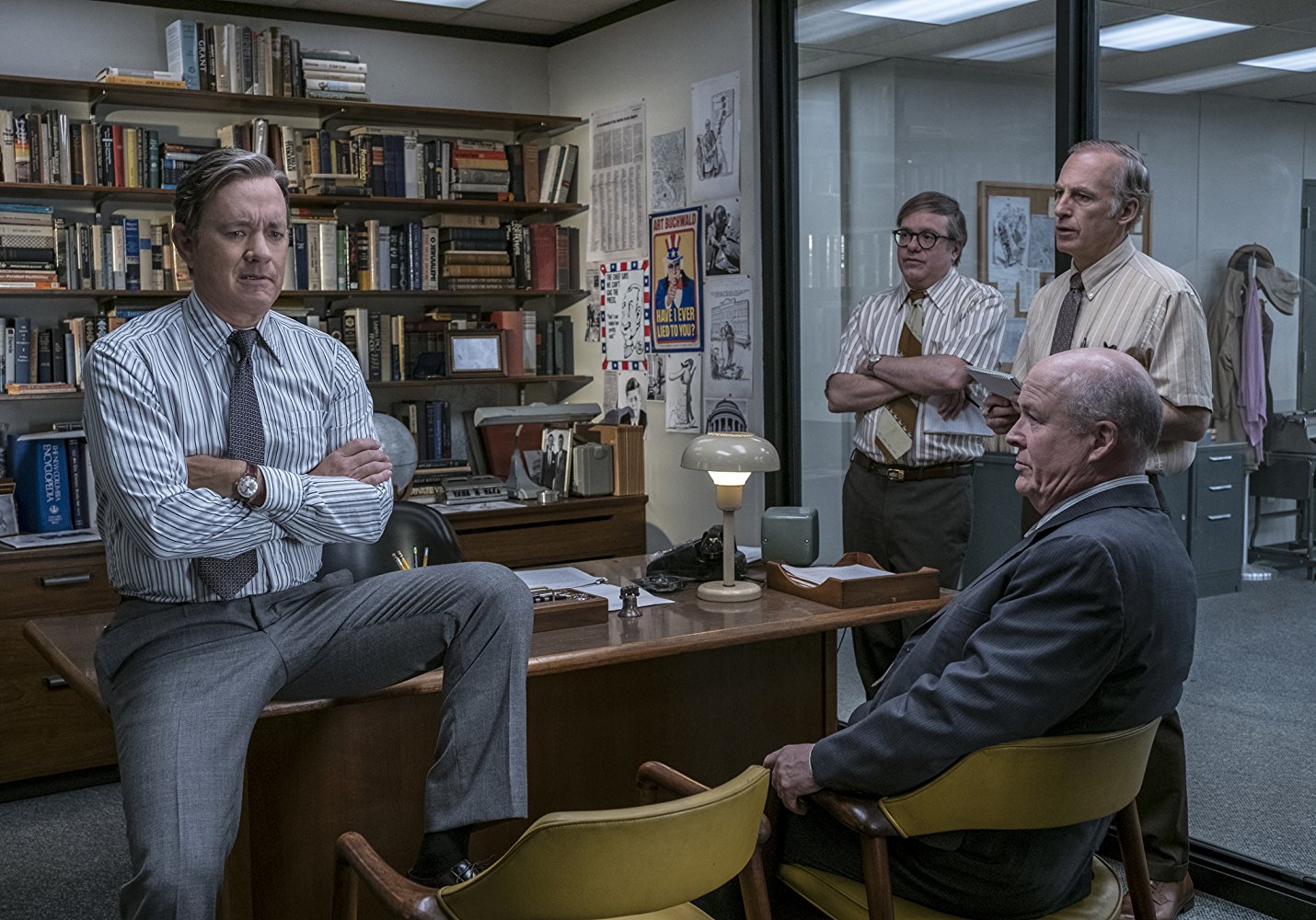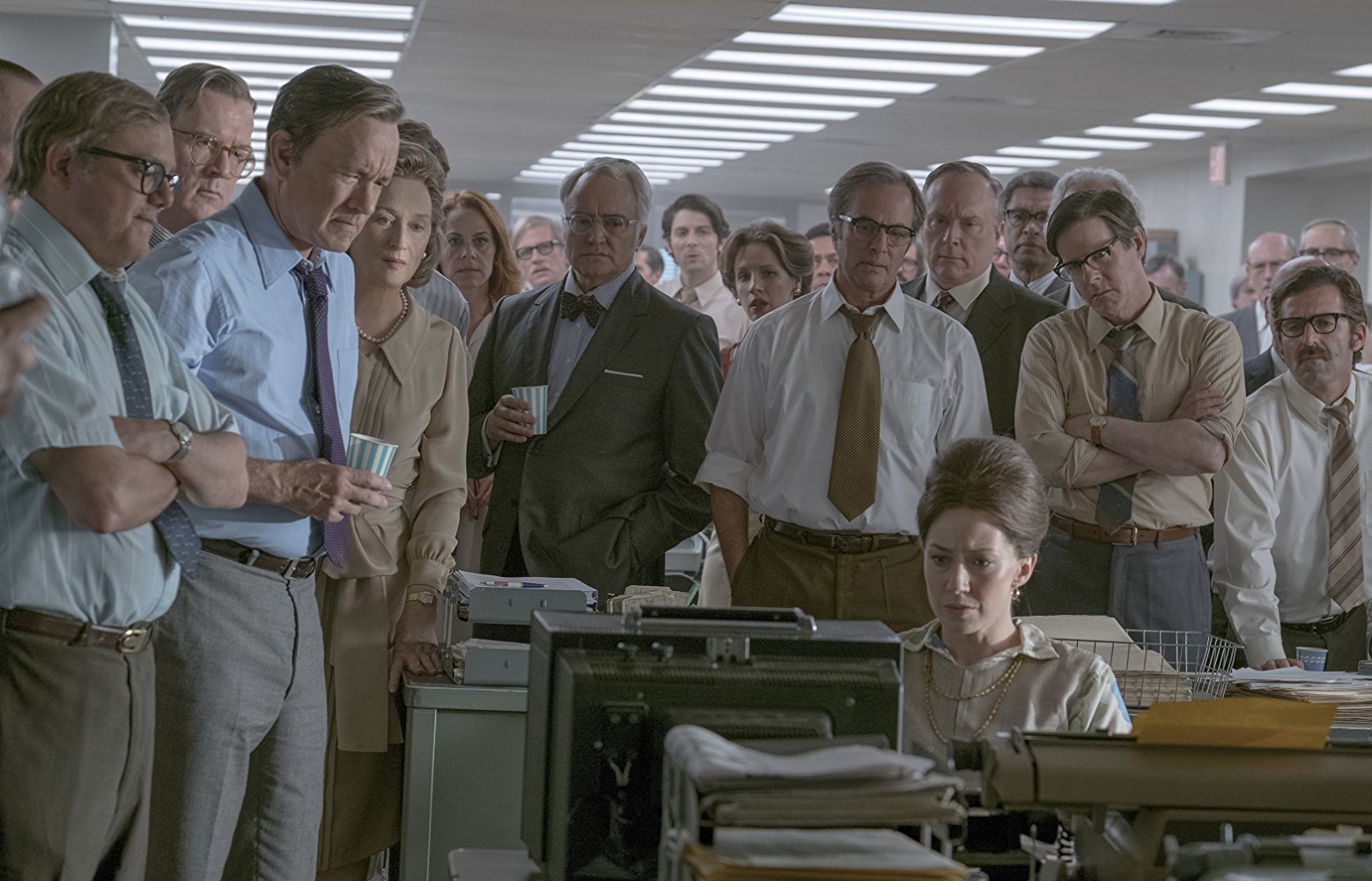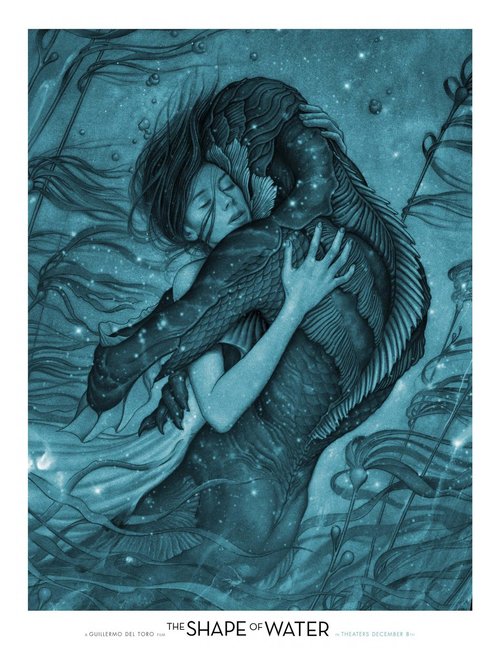The film starts in Vietnam with a brief but chaotic battle scene. Daniel Ellsberg (Matthew Rhys, “Burnt”), a military analyst, types up his thoughts on the progress made. On Air Force One, the Secretary of Defense, Robert McNamara (Bruce Greenwood, “Star Trek (2009)”), asks Ellsberg for his opinion on the war, and disheartened, Ellsberg says that nothing has really changed. McNamara, frustrated, turns to H.R. Haldeman, Nixon’s chief of staff, and says that they’ve been deploying more soldiers to Vietnam, and the lack of progress despite more troops effectively means the war is getting worse. Immediately after landing however, McNamara smiles at the press and tells them the war is going well. Ellsberg wont stand for this, so he begins to covertly sneak classified documents from the Pentagon, making copies with his coconspirators. Upon reading the documents, he discovers the government’s lie stretches further than Nixon’s presidency; the cover-up was known by the four previous presidents: Truman, Eisenhower, Kennedy, and Johnson.
While the film starts off with a (literal) bang, the next half hour of the film takes a noticeable loll as it tries to find its footing. Kay Graham (Meryl Streep, “The Iron Lady”) nervously discusses plans for the company to go public with Fritz Beebe (Tracy Letts, “Lady Bird”), a trusted friend and board member for the Post. He reassures her that everything will go fine, but she is determined to memorize her talking points. She meets with the Post’s Chief Editor, Ben Bradlee (Tom Hanks, “Saving Private Ryan”) to discuss how to attract a wider demographic. Graham then goes to a board meeting, wearing a greyish suit but surrounded by a sea of men in black; she is a woman, desperately floundering to stay afloat and relevant in a business run predominantly by men. During a board meeting, when Arthur Parsons (Bradley Whitford, Get Out) asks a question regarding the budget, she answers, but the answer is ignored until a Beebe parrots her. Throughout the film, there are dozens of shots where Streep is literally surrounded by men that loom over her, almost claustrophobically so. The recurring theme of woman being forced to the back of the workplace is impressively subtle, but also incredibly important. Streep is looked on as a type of stoic, silent role model for women.
For a while we are a fly on the wall of the Post, watching as Bradlee scrambles around the office trying to put together the next paper with his reporters, while simultaneously keeping a close eye on his rival competitors: The Times. Bradlee sends an intern to the Times to try to find out what the Time’s best reporter, Neil Sheehan, is working on. The intern is unable to find out what the piece is on, but he does find out that Sheehan’s article will be on the front page the next day. Meanwhile, Graham receives a visit from McNamara, who is a lifelong friend, and he tells her that the Times will be printing something about him on the front page. The next day, the Times publish their first story on the Panama Papers and it takes the country by storm. During a dinner Graham the Times editor, Abe Rosenthal (Michael Stuhlbarg, “Call Me By Your Name”), Rosenthal receives word that Nixon intends to take the Times to court over the published documents.
Ben Bagdikian (Bob Odenkirk, “Incredibles 2”), a reporter with the Post, after hours of cold calling, finally makes contact with Ellsberg. Ellsberg meets Bagdikian in a motel; documents are spread round the cheap room in thick, incriminating piles. Ellsberg asks if Bagdikian would go to jail to stop the Vietnam War, and Bagdikian answers, “Hypothetically, yeah.” Ellsberg shakes his head. “You’re going to publish, right? Then this isn’t hypothetical.” As the story progresses, and the Post’s reporters diligently comb through the thousands of pages to find a story, the question of whether or not Graham will allow the story to go to press garners more and more implications. Should Graham publish, not only will the Post be going directly against an order of the courts, but she may also be putting her freedom, and the freedom of those she works with, at risk.
The Good:




















